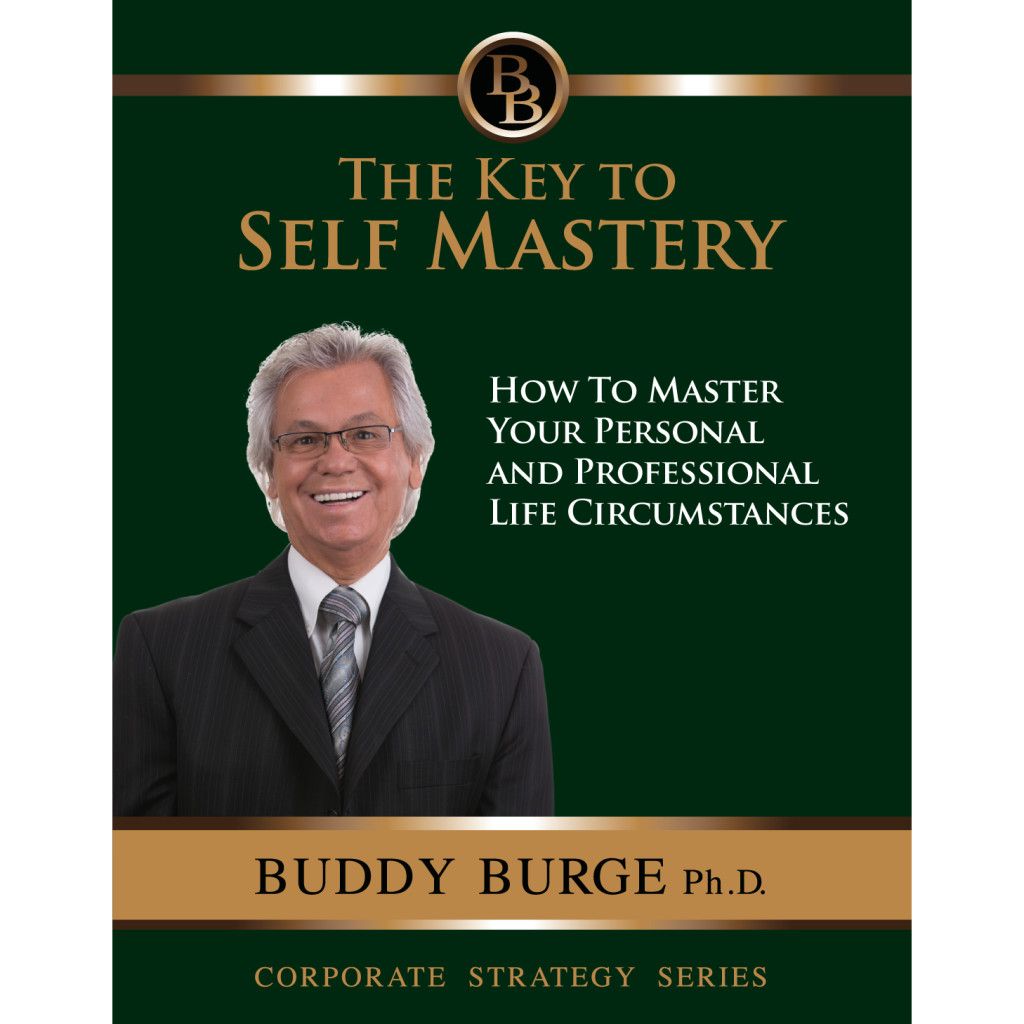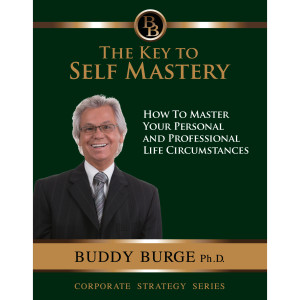
We Don’t Have “Free Will” Only “Free Won’t”
“A human being is a deciding being. Between stimulus and response there is a space.
In that space is our power to choose our response.
In our response lies our growth and our freedom.
Everything can be taken from a man or a woman but one thing: the last of human freedoms to choose one’s attitude in any given set of circumstances, to choose one’s own way.”
Viktor E. Frankl
![CropperCapture[703]](http://buddyburge.com/wp-content/uploads/2014/05/CropperCapture703-300x264.png)
In my book “Self Mastery” after citing and detailing the five steps to self mastery I provide 19 strategies we can use to develop a deeper capacity for Self mastery.
We Don’t Have “Free Will” Only “Free Won’t” is strategy number three.
To what extent can we exert free will or are we at the deterministic mercy of environment or heredity.
For obvious reasons, having a good (the right) answer) to this question is crucial for any leader.
Subjectively, we have the experience of sitting at a desk and then, without any sense of being “made” to do so, voluntarily “deciding” to take a sip of tea.
This feels like free will. However, many of our behaviors, such as shopping selections, can be predicted so well that there is a science of product placement.
Neuroscientists Libet, Gleason, Wright, and Pearl (1983) came up with good news and bad news regarding free will.
They found that the brain generates a signal, a “readiness potential,” to pick up our teacup about five-tenths of a second before we actually pick up the cup.
We Are Not Conscious of this Signal until About Three-Tenths of a Second Later
The bad news is that if we define free will as the ability to consciously generate readiness potentials, we don’t have it.
Some of those thoughts have to do with “voluntary” actions.
We do not voluntarily think these up, as we do not even become aware of them until three-tenths of a second after they register on instruments in the lab.
![CropperCapture[704]](http://buddyburge.com/wp-content/uploads/2014/05/CropperCapture704-300x270.png)
So We Do Not Freely Will Our Options For Action To Appear In Our Brains
It is in that gap of two-tenths of a second between awareness and action that we can decide not to do what we have unconsciously generated as an option for action.
The sequence is this:
1. In 0.5 seconds before an action occurs our unconscious Reptilian brain reacts (defensively).
2. At 0.2 seconds before the action, our limbic brain registers the awareness of the urge to act.
3. At 0 second, the neocortical brain gives you the permission to act.
Veto Power
We can decide not to reach for the teacup or make a snide remark or cut another piece of cake.
This is called “veto power.”
We do not have free will when it comes to voluntarily creating our brain’s readiness potential, but we have “free won’t” when it comes to performing the acts that we become aware of.
This helps explain why changing old habits to new ones is so difficult.
So we apparently have no control (free will: the power to generate readiness signals) over the thousands of thoughts we constantly have throughout the course of the day.
However, it is in the gap of two-tenth of a second between awareness and action that we can decide not to do what we have unconsciously generated as an option for action.
We don’t have free will but we do have free won’t, “Veto Power” to not pick up the cake and put it in our mouth.
![CropperCapture[705]](http://buddyburge.com/wp-content/uploads/2014/05/CropperCapture705-256x300.png)
But the Brain Also Makes Connections Based on Use
When we have repeated a behavior often enough, it becomes automatic, a potential that often and easily comes to mind, a habit.
The more often we perform that action, the stronger the connection and likelihood that it will present itself as a readiness potential.
However, every time we exercise veto power and do something other than the habit we are attempting to break, the more we reinforce alternative actions.
How to Use Your Veto Power
![CropperCapture[706]](http://buddyburge.com/wp-content/uploads/2014/05/CropperCapture706-300x263.png)
The secret is to have premeditated thought and action at the ready beforehand, for that .2 (two-tenths) seconds window; to choose a more empowering, healthy, better thought and action.
This is the only way you can use your “Veto Power”.
In other words, have your brain trained to choose to do something else.
An immediate, automatic and alternative action at the ready, (thought out and agreed upon with yourself beforehand), a rehearsed verbal reaction, go for a walk, call a friend etc.
When we have repeated a behavior often enough (the latest research seems to suggest a period of about 66 days repeated behavior on average leads to a behavior becoming a good habit; not the rule of thumb 21 days that has been touted in much of the pop psychology literature) it becomes automatic, one that often and easily comes to mind, a habit that creates a new and different circuitry in your brain.
This will then reduce the strength of the old compulsion, eating the cake, making a snide remark etc. making the new connection stronger and deepening the likelihood that it will become the well exercised veto power over the old habit we are attempting to break.
I consider this to be an extremely important tool.
I trust you do as well.
Good luck.
For more on this topic, we recommend the following | |
 | The Key to Self MasteryHow to Master Your Personal and Click Here For Video and Full Description If you found this article useful |

